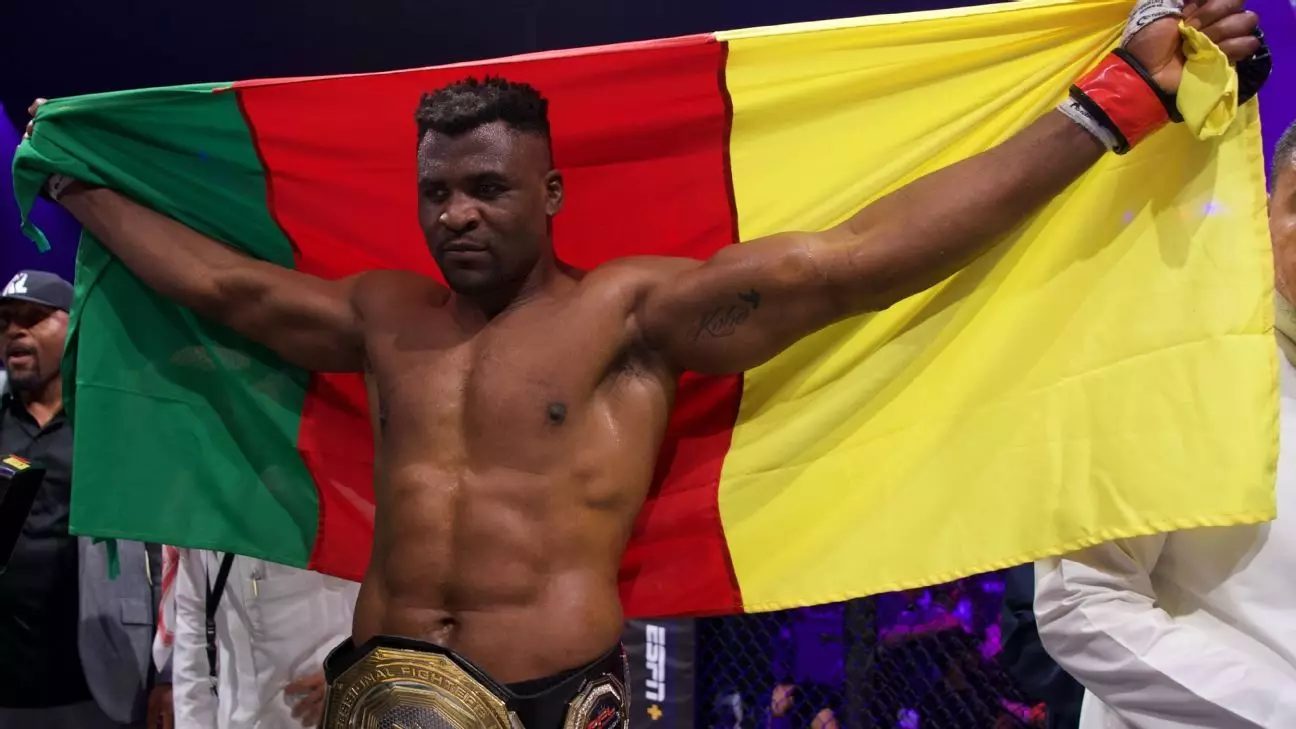Francis Ngannou, once the heavyweight king of the UFC, is no stranger to struggles within and outside the ring. Recently, he faced a tragic incident that led to the untimely death of a young woman in Cameroon, an event that has cast a shadow over his career and personal life. With the public eye firmly planted on him, Ngannou’s response to the tragedy reveals a deep, complex character that goes beyond the persona of a fierce fighter. While controversy can often lead to public disapproval, Ngannou’s statement reflects a rare sense of accountability and empathy.
Facing the Fallout
Reports indicate that Ngannou was involved in the accident during a moment that should have been a joyous reunion with his roots – Easter weekend. The narrative of this tragedy doesn’t just spark discussions about responsibility on the road; it reinforces the idea that public figures are often held to an incredibly high standard, expected to be paragons of virtue even in their private lives. Ngannou, at 38, grapples with this duality: the heavyweight champion celebrated for his achievements and a man haunted by the consequences of a momentary lapse.
His commitment to support the victim’s family during their grief speaks volumes about his character. By choosing to offer comfort rather than shrink from the repercussions of his actions, he aims to transform the narrative from one of blame to one of reconciliation and healing.
Redirecting the Path
Following this traumatic event, Ngannou continues to redefine his trajectory in the sporting world. After leaving UFC due to contractual disagreements, he ventured into boxing – attempting to make waves against giants like Tyson Fury and Anthony Joshua, albeit with losses that could have derailed many a fighter’s resolve. Yet, Ngannou’s decision to return to MMA in search of redemption, resulting in a triumphant debut with a TKO victory, illustrates an unyielding spirit.
Moreover, the weight of personal loss has shaped Ngannou into a more profound figure. The heartbreaking loss of his infant son, Kobe, adds layers to his resilience. Such tragedies transform individuals into advocates for change, and Ngannou’s evolution seems to be one where he channels pain into empowerment. Instead of wallowing in sorrow or anger, he uses these experiences to fuel his desire to forge a better future, both personally and professionally.
Shifting the Perspective on Masculinity in Sports
The world of professional sports grapples with the archetype of masculinity: strong, silent types who rarely showcase vulnerability. Ngannou breaks this mold by openly discussing personal loss and showing emotional depth in light of crisis. His overt expressions of empathy challenge the prevailing notions of what it means to be a “man” in today’s society.
In an era where mental health issues plague athletes, Ngannou could become a beacon for change. He embodies the struggle of reconciling success with sorrow while standing firm in the face of public scrutiny. His ability to openly shoulder the grief and stand with the victim’s family marks a critical shift in how athletes engage with their communities, fostering a sense of unity that transcends the labels of “champion” or “defeated.”
Ngannou’s journey from the pinnacle of success to grappling with personal and public tragedies reminds us that the path of resilience is often paved with adversity. As he continues to face the ramifications of last month’s tragic incident, the world watches not only for his next fight but for the impact he can make beyond the confines of the ring.


Leave a Reply